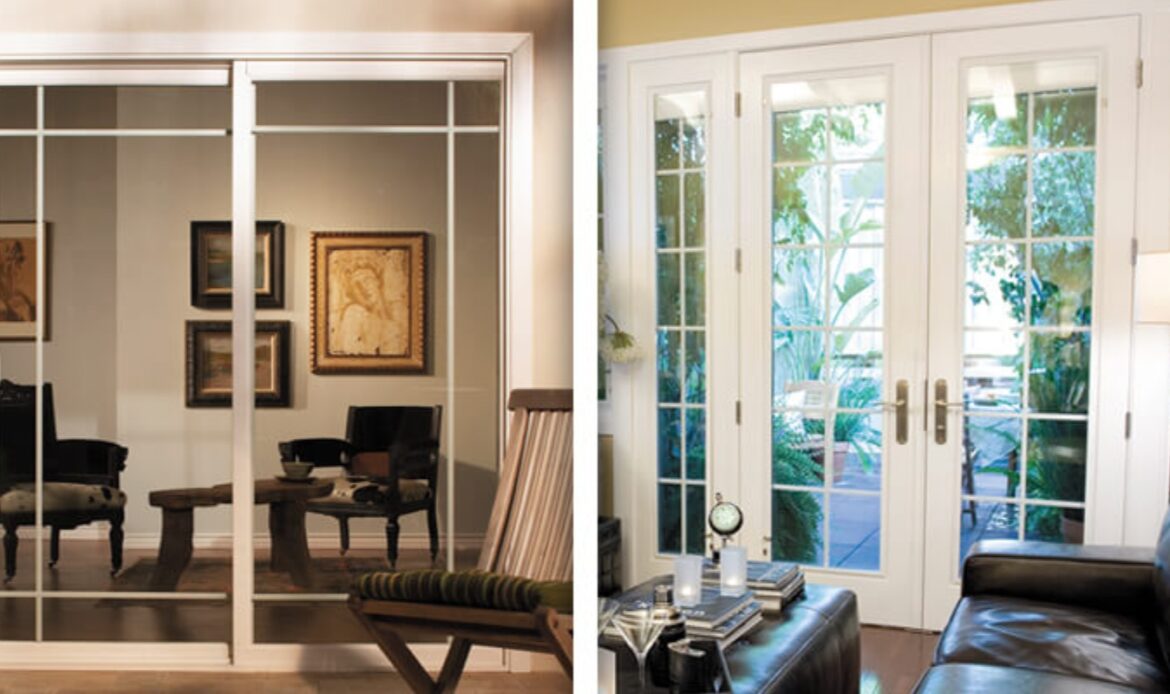When it comes to choosing the right doors for your home, there are many factors to consider. One of the most important decisions you’ll need to make is whether to go for sliding or hinged doors. Both options have their own advantages and disadvantages, and understanding them can help you make the best decision for your home. In this article, we will break down the pros and cons of sliding vs. hinged doors to help you decide which is the better option for you.
Sliding Doors:
Pros:
- Space-saving: Sliding doors don’t require any clearance space, which makes them ideal for areas where space is limited. They are great for small homes and apartments, where you need to make the most of the available space.
- Natural light: Sliding doors come in large sizes, which means they allow ample natural light to come in. This makes the room look brighter and more spacious.
- Energy-efficient: Sliding doors are designed to be energy-efficient. They keep the indoor temperature stable, which helps reduce energy consumption and lower your utility bills.
- Easy to operate: Sliding doors are easy to operate, and you don’t have to put in much effort to open or close them. They are ideal for people with mobility issues or those who have trouble operating heavy doors.
Cons:
- Security: Sliding doors are often considered less secure than hinged doors. They are easier to pry open, which makes them vulnerable to break-ins. However, you can install additional security measures like a security bar or a latch to enhance the security of your sliding doors.
- Limited ventilation: Sliding doors don’t offer much ventilation compared to hinged doors. You can only open one side of the door, which limits the amount of air that can come in.
- Maintenance: Sliding doors require regular maintenance to keep them functioning smoothly. Dirt, debris, and other particles can accumulate in the tracks, which can affect their performance. You need to clean the tracks and rollers regularly to ensure smooth operation.
Hinged Doors:
Pros:
- Security: Hinged doors are considered more secure than sliding doors. They are more difficult to pry open, which makes them a better option for those who prioritize security.
- Ventilation: Hinged doors offer better ventilation than sliding doors. You can open the entire door, which allows more air to come in and circulate throughout the room.
- Durability: Hinged doors are more durable than sliding doors. They are made of thicker and stronger materials, which makes them less prone to damage and wear.
- Style: Hinged doors come in a variety of styles and designs, which means you can choose one that complements the aesthetics of your home.
Cons:
- Space-consuming: Hinged doors require more clearance space than sliding doors, which makes them unsuitable for areas where space is limited.
- Difficult to operate: Hinged doors can be difficult to operate, especially if they are heavy or have loose hinges. This can be a problem for people with mobility issues or those who have trouble opening heavy doors.
- Energy-inefficient: Hinged doors are less energy-efficient than sliding doors. They allow more air to escape, which can lead to higher energy consumption and utility bills.
Conclusion:
Choosing between sliding and hinged doors ultimately depends on your personal preferences, needs, and the layout of your home. If you have limited space and want to maximize natural light, sliding doors may be the better option for you. On the other hand, if security and ventilation are your top priorities, hinged doors may be the better choice. Consider the pros and cons of both options before making a decision, and choose a door that fits your needs and budget.
